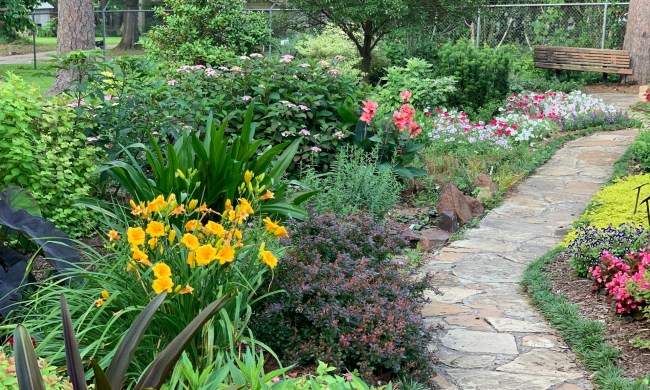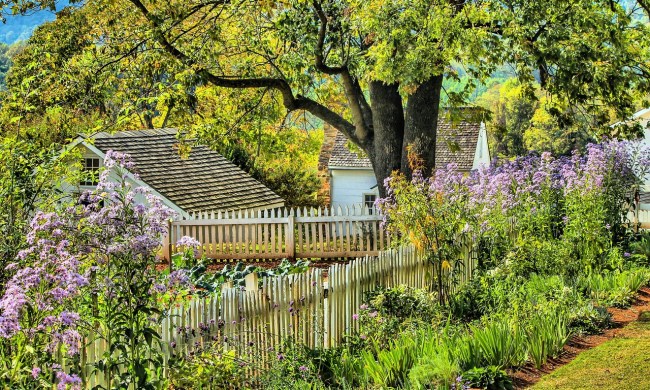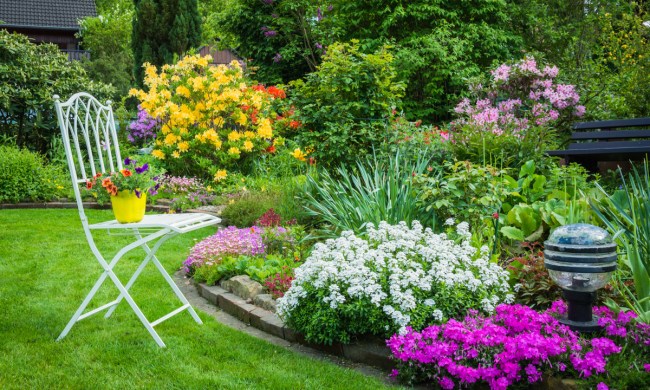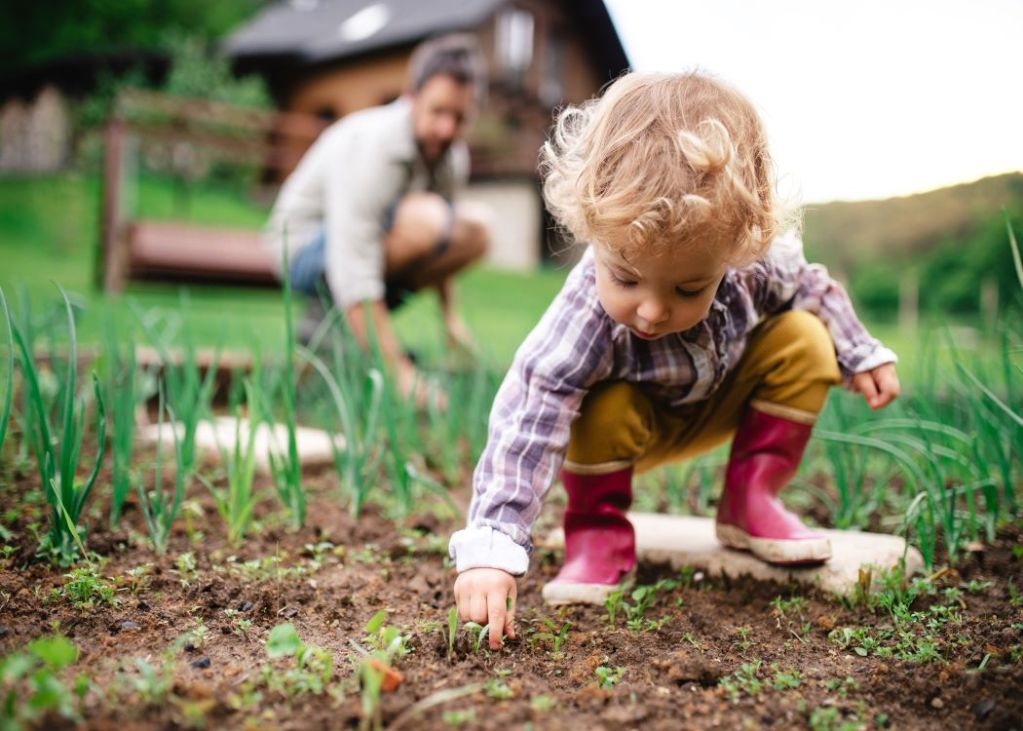
I remember fondly the summer days spent in my grandmother’s backyard: picking blackberries, collecting apples and plums, and helping in the garden. The smell of the dirt, the sight of earthworms wiggling about, and the sounds of the birds in the trees all seemed to work together to create a perfectly magical afternoon. The day would usually wrap up with fireflies twinkling and crickets chirping, with a feeling of calm serenity that was otherwise unsurpassed.
Turns out there’s actually some science to back up that description, too. Not only does gardening help re-connect us to the earth, improve our eating choices, and get our daily sunlight and vitamin D needs met, but working with soil is a proven mood-lifter. On top of that, the National Gardening Association says that the act of gardening benefits kids’ health, well-being, attitude toward learning, and self-esteem — and if done as a family, it can strengthen family-bonding to boot. Let’s look deeper at some of the science about what’s happening when we garden:
Gardening is a proven stress-buster
There are numerous studies confirming that gardening lowers stress. For starters, a study conducted in the Netherlands and published in the 2010 Journal of Health Psychology revealed that after 30 minutes of gardening, significant decreases in cortisol (a stress hormone) were observed, and a positive mood was fully restored in study participants — most noteworthy was that the gardening boosted moods even higher than 30 minutes of reading.
Another study by Kaiser Permanente in 2013 noted that a regular gardener’s brainwave activity matched that of someone in deep prayer or meditation, and, finally, according to Dr. Eva Shaw, author of Shovel It: Nature’s Health Plan, “Gardening can reduce the need for anti-depressants and painkillers, and help you cope with stress.”
Gardening and connecting with nature helps kids thrive
Children thrive in various ways when given a place to play in nature. When allowed a connection with nature, for example, children end up playing in more creative ways, eventually developing greater self-discipline later in life. Having a green play area on a regular basis can also improve self-esteem, increase resilience, and build the strength to withstand adversity. Children diagnosed with ADHD and/or sensory integration difficulties benefit greatly from natural green spaces too; it’s been noted in several studies to improve functioning after some time has been spent in nature.
Gardening can help prevent childhood obesity and make adults healthier
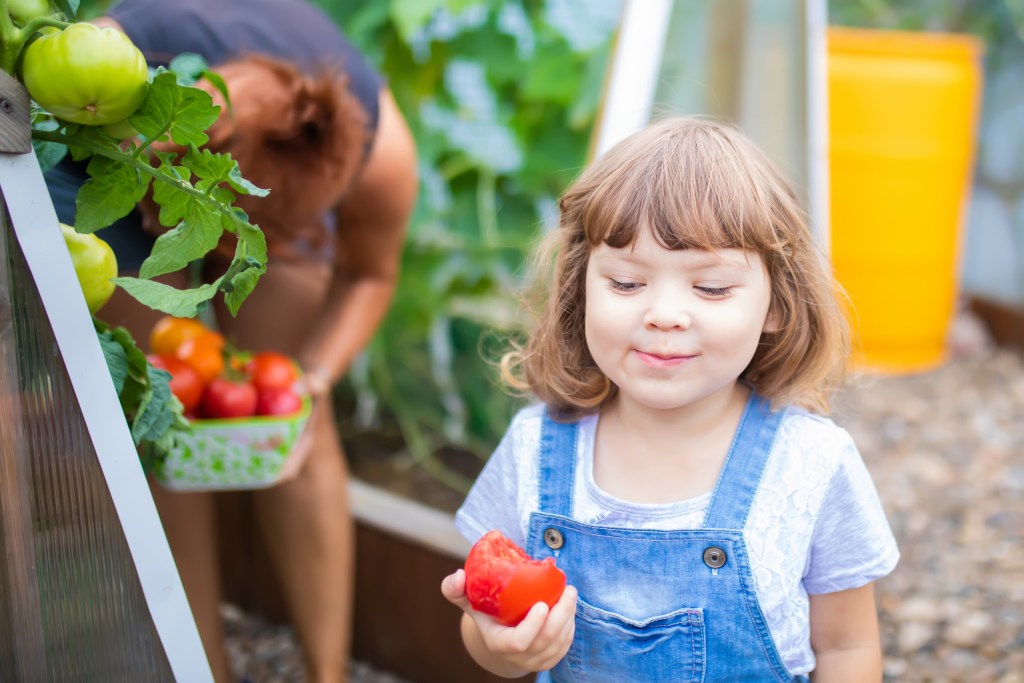
According to the American Dietetic Association, children who garden tend to eat more fruits and vegetables. This healthy tendency results in lower rates of childhood obesity, with kids reaching for cucumbers, radishes, and sunflowers instead of chips, candy, and cookies. Additionally, studies reveal that kids who garden usually have better concentration skills, flexibility, and self-awareness, as well as greater motivation overall. A Texas A & M study hosted by the Horticultural Society of America showed gardeners having more energy later in life, also, enjoying more physical activity, less degeneration in cognitive activity, and generally better health.
Gardening can help those healing and in recovery reach their goals
Dr. Eva Shaw, the author mentioned earlier, noted that hospitalized patients experienced faster healing and needed fewer painkilling medications when merely reflecting on a painting of a garden. Shaw wondered about the potential effect a real garden could have if they do this much better with only a painting! In the addiction recovery realm, horticulture therapy is considered to be one of the most effective methods for recovery as well. It is known to be particularly effective for those dependent on harmful substances, living through PTSD or other traumatic experiences, or confined to a correctional facility.
According to Lori Lite’s StressFreeKids blog, the pros vastly outweigh the cons when it comes to gardening with kids. Some of the benefits Lori notes include:
- Children learn how to nurture and have patience through gardening.
- Bonding time can occur between family members of different ages when gardening.
- Kids can become more environmentally aware through hands-on gardening experiences.
- Stressed out kids can learn to relax through gardening.
- Kids can learn responsibility through gardening.
- Gardening can stimulate a desire to learn outside the garden.
- Gardening can improve the belief in one’s self, increase self-esteem and boost creativity.
- Growing herbs in addition to vegetables can stimulate an interest in cooking.
- Alzheimer’s and Autism as well as countless other medical and social service areas have incorporated garden therapy successfully into their treatment planning.
- Neighborhoods with community gardens (or even individuals) have been known to see a decrease in crime over time. Buildings with plenty of greenery around compared to those with plenty of greenery featuring no vegetation at all had 48% fewer property crimes and 56 % fewer violent crimes.
- Even indoor plants can have an impact. If you don’t have room for an outdoor garden, consider large pots on the balcony or patio, or even a little herb garden on the window sill. Terrariums, chia pets, or plants like these can be beneficial to kids and their families as well.
If you’ve got room to plant a garden, consider yourself blessed. Even just a tiny one next to your apartment, seeds in pots on the patio, or a window sill assortment of herbs growing can be more helpful than you may think. From stress reduction to developing healthier eating habits and fighting obesity, increasing self-esteem, improving concentration, boosting mood, healing wounds and working through trauma, learning how to nurture and have patience, building resilience, and stimulating an interest in cooking and more, there are countless science-based reasons to get out there and garden with your family.
Beneficial to all ages in numerous ways, gardening should become part of our lives in one way or another sooner than later if possible. Especially helpful during times when we can’t leave the house for long periods of time, gardening can calm anxieties and fears and help maintain calmness. There’s really no downside to getting started on your garden today!

